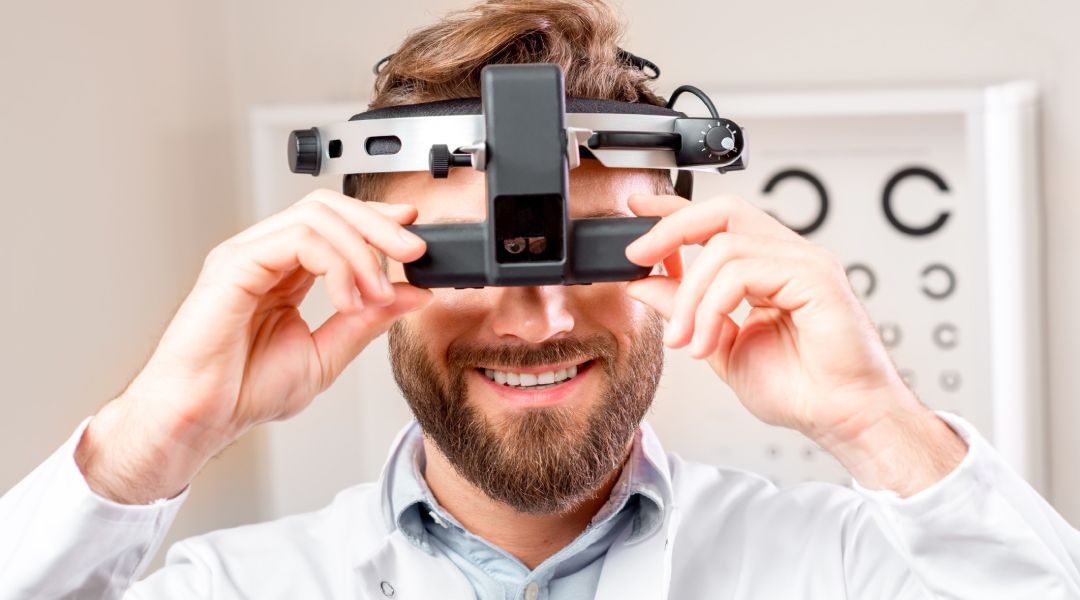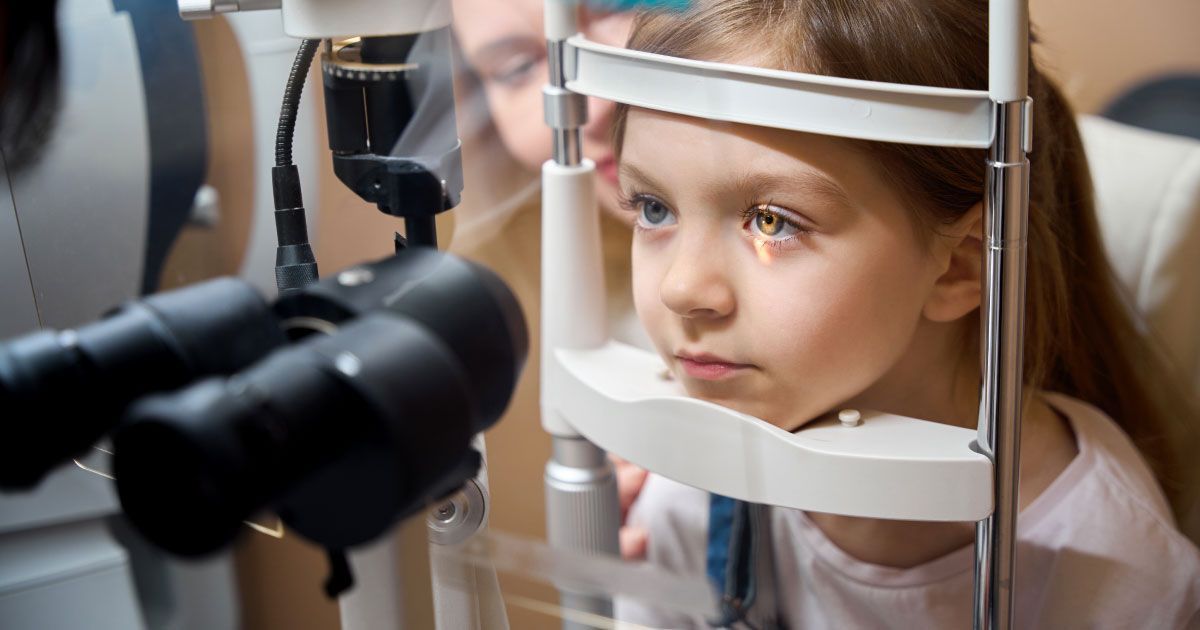Navigating Comprehensive Eye Care: Optometrists and Ophthalmologists in Partnership for Your Vision Health

Read time: 4 minutes
Have you ever wondered what the difference is between an optometrist and an ophthalmologist? Are they the same? Navigating the differences between these two eye care professionals often poses a challenge for many individuals.
Let's dig into the differences between these two professions and break down how each one plays a role in keeping your eyes healthy. Also, learn how Urban Optiks' doctors team up with reliable specialty partners - especially when dealing with advanced eye problems - in order to provide a comprehensive pathway for your vision needs.
Breaking Down the Roles of Optometrists and Ophthalmologists
Understanding the roles of each of these eyecare professionals in a manner akin to other medical providers can make it a little easier to understand. Optometrists, function much like your primary care doctor does, offering comprehensive everyday care (for your eyes), while ophthalmologists serve as specialized experts who may be consulted for intricate issues or surgical interventions. Despite their interconnected nature, these professions
serve unique purposes, making distinctive contributions to the broader realm of vision health.
What is An Optometrist?
Optometrists, often informally referred to as Eye Doctors, are eye care professionals who have received a Doctor of Optometry (OD) degree. They are vision specialists with a primary focus on non-surgical eye care. They excel in routine eye examinations, prescribing corrective lenses, and managing common refractive errors. Beyond vision correction, optometrists play a critical role in identifying and addressing various eye conditions, from mild to moderate in severity.
Reasons to See an Optometrist:
- Routine eye exams: Optometrists provide comprehensive eye examinations, evaluating not only vision but also overall eye health to help detect early signs of diseases such as glaucoma and macular degeneration.
- Prescription eyewear: Whether you're in need of glasses or contact lenses, optometrists specialize in determining the most suitable corrective lenses for your visual needs.
- Management of common eye conditions: Optometrists are adept at managing and treating conditions like dry eyes, conjunctivitis, and allergies.
What is an Ophthalmologist?
Contrastingly, ophthalmologists emerge from extensive medical training, holding either an MD or DO degree, and are qualified to perform surgery in addition to providing medical eye care. They serve as the experts in diagnosing and treating complex eye diseases and performing surgical interventions for a range of conditions.
Reasons to See an Ophthalmologist:
- Surgical interventions: Ophthalmologists are uniquely positioned to perform a variety of eye surgeries, including cataract surgery, LASIK, and procedures to address retinal issues.
- Treatment of advanced eye conditions: Individuals with advanced eye diseases such as glaucoma, diabetic retinopathy, or macular degeneration often require the expertise of an ophthalmologist for specialized medical care.
- Comprehensive medical eye care: Ophthalmologists diagnose and manage a broad spectrum of eye diseases, providing eye care through medical interventions.
Choosing Between an Optometrist and an Ophthalmologist
Selecting the right eye care professional hinges on the nature of your eye health needs. For routine vision maintenance, obtaining prescriptions for eyewear, or managing common eye conditions, an optometrist is often the appropriate choice. However, when facing complex eye issues, requiring surgical interventions or specialized medical treatments, consulting an ophthalmologist is recommended for an advanced level of care.
In many cases, ophthalmologists require a referral from your primary optometrist before scheduling an appointment. Therefore, it is advisable to start by seeking the consultation of your primary eye doctor who can assess your situation and then refer you to the best eye specialist suited to address your particular needs.
Collaborative Care
Collaboration between optometry and ophthalmology is integral to providing the best eye and vision healthcare. In modern health delivery, a team approach leads to the best outcomes. The two professions have different but complementary skills. Patients and the general public are best serviced when the two work together, support each other and communicate well with each other.
Urban Optiks Optometry takes a proactive co-management approach to comprehensive eye care by not only excelling in routine services but also by establishing collaborative partnerships with specialized eye care professionals like Gordon Schanzlin New Vision Institute, NVISION Eye Centers, San Diego Retina Associates, and Shiley Eye Institute. This ensures that even the most complex eye issues are addressed with a team of experts working together seamlessly.
Urban Optiks Optometry's Collaborative Model
- Building Trust with Specialized Partners: Urban Optiks Optometry has cultivated relationships with a network of trusted specialists, including retinal specialists, neuro-ophthalmologists, corneal specialists, and refractive surgery specialists. This ensures that our patients have access to a diverse range of expertise when needed.
- Seamless Referrals for Specialized Care: When a patient presents with a condition that requires specialized attention, Urban Optiks Optometry takes a proactive approach to refer them to the most qualified specialists. This ensures a smooth transition between primary and specialized eye care.
- Coordinated Care for Complex Cases: In cases where multiple specialists are involved, Urban Optiks Optometry takes on the role of a coordinator, ensuring that your care is well-managed and that all aspects of your eye health are considered.
The Role of Technology in Collaborative Eye Care
Urban Optiks Optometry leverages advanced technologies to facilitate collaboration with specialized partners. video conferencing platforms, secure electronic health records, and digital imaging systems enable seamless communication and information sharing between our doctors and our network of specialists.
The Takeaway
Navigating the world of eye care involves a dynamic duo: Urban Optiks Optometry's award-winning optometrists for your everyday eye needs and ophthalmologists for specialized care. With Urban Optiks Optometry's commitment to partnering and referring complex cases to trusted specialists, you're in capable hands for all facets of eye care. By working hand-in-hand, they provide a comprehensive and integrated approach to eye health, ensuring that your vision remains clear and vibrant throughout every stage of life.
If you are in need of your annual eye exam or have an issue that may require advanced medical care,
schedule an appointment to see one of Urban Optiks Optometry's highly qualified optometrists.
Share this blog post on social or with a friend:
The information provided in this article is intended for general knowledge and educational purposes only and should not be construed as medical advice. It is strongly recommended to consult with an eye care professional for personalized recommendations and guidance regarding your individual needs and eye health concerns.
All of Urban Optiks Optometry's blog posts and articles contain information carefully curated from openly sourced materials available in the public domain. We strive to ensure the accuracy and relevance of the information provided. For a comprehensive understanding of our practices and to read our full disclosure statement, please click here.


















